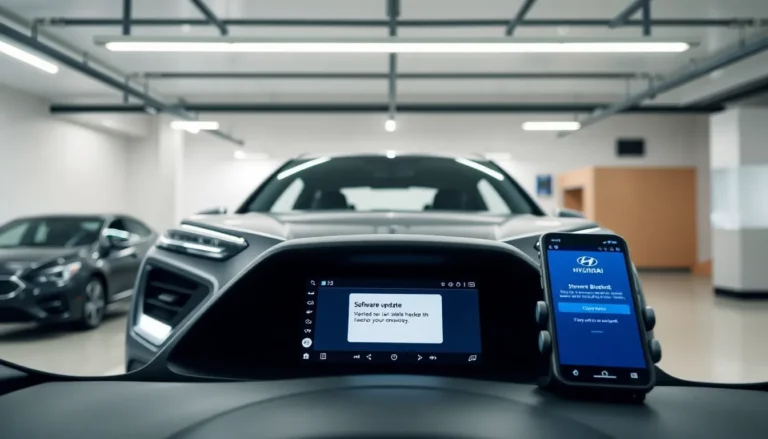Navigating taxes can feel like trying to decode an ancient language, especially for millennials who’ve grown up in a world of instant gratification and smartphone apps. But fear not! Understanding the basics of taxes doesn’t have to be as daunting as finding a parking spot at a music festival. With a little guidance, millennials can turn tax season from a dreaded chore into a manageable task.
From deductions that could save them a chunk of change to credits that might even put a smile on their faces, knowing the ins and outs of taxes is crucial. After all, who wouldn’t want to keep more of their hard-earned money for that avocado toast? Let’s dive into the essentials of millennial tax basics and help them conquer tax season like the pros they are.
Table of Contents
ToggleUnderstanding Millennial Tax Basics
Grasping the fundamentals of taxes makes tax season less daunting. With knowledge about how taxes work, millennials can take control of their financial situations.
What Are Taxes?
Taxes are mandatory contributions collected by governments to fund public services. These services include education, transportation, and healthcare, among others. Governed by a complex system, tax laws often vary by location and income level. Additionally, various forms exist, such as federal, state, and local taxes. Every year, individuals and businesses assess their taxable income to determine their tax obligations. Understanding this concept enables millennials to comprehend how their earnings support essential services in their communities.
Types of Taxes Millennials Need to Know
Various types of taxes impact millennials directly. Income tax represents a significant obligation based on earnings. Sales tax applies during purchases of goods and certain services, influencing overall spending. Property tax arises when owning real estate, affecting homeownership decisions. Additionally, payroll tax funds Social Security and Medicare, impacting long-term benefits. Understanding these tax types allows millennials to make informed financial decisions that affect their budgets and investments.
Common Tax Deductions for Millennials
Understanding available deductions simplifies tax filing and enhances savings. Millennials frequently benefit from specific deductions tailored to their unique financial situations.
Education-Related Deductions
Education-related deductions significantly reduce taxable income. The American Opportunity Tax Credit allows eligible students to claim up to $2,500 for qualified education expenses during their first four years of higher education. Lifetime Learning Credit provides up to $2,000 per tax return for qualified tuition and related expenses, covering a broader range of courses. Student loan interest deduction allows millennials to deduct up to $2,500 in interest paid on qualified student loans, depending on income. Utilizing these deductions helps alleviate the financial burden of education and enhances tax returns.
Work-From-Home Deductions
Work-from-home deductions apply to millennials who utilize home offices for business purposes. The simplified method allows individuals to deduct $5 per square foot of home office space, up to 300 square feet. Expenses related to computers, internet, and phone bills may qualify for deductions if used for work. Additional deductions include home-related expenses, such as utilities and rent, proportional to the office space used. Understanding these deductions maximizes potential savings for remote workers.
Filing Taxes: A Step-by-Step Guide
Filing taxes can feel overwhelming, but a structured approach simplifies the process. Breaking down the steps makes it easier for millennials to understand.
Choosing the Right Tax Software
Selecting the right tax software streamlines the filing process. Several options exist, such as TurboTax, H&R Block, and TaxAct. These programs offer user-friendly interfaces and guidance throughout the filing. Many provide features like tax calculators and quick filing options. Assessing various software capabilities helps determine the best fit. Free versions may suffice for simple returns, while more complex situations might require paid versions.
Important Documents to Gather
Gathering essential documents ensures a smooth filing experience. Start with Form W-2, which reflects annual earnings from employers. Collect 1099 forms for freelance work or interest from other sources. Student loan interest statements are vital for deductions. Additionally, keep track of receipts related to work-from-home expenses. Health insurance forms and any relevant investment documentation contribute to an accurate return. Having these documents organized helps in avoiding errors and maximizing potential refunds.
Common Mistakes to Avoid
Understanding common tax mistakes helps millennials file accurately and maximize their returns.
Misreporting Income
Misreporting income leads to significant issues with the IRS. It’s crucial for millennials to report all sources of income, including side gigs or freelance work. Omission of certain amounts can trigger audits or penalties. Each form of income, whether from a job or gig economy platforms, contributes to total taxable earnings. Tracking all income meticulously ensures transparency and reduces the risk of errors. Using a financial app can simplify this process by consolidating income entries. Proper record-keeping goes a long way in avoiding disputes with tax authorities.
Missing Deadlines
Missing deadlines creates unnecessary complications in the tax filing process. Completing tax forms after the due date often results in late fees or penalties. Millennials should note the regular tax deadlines, typically around April 15, and plan accordingly. Setting reminders or using a calendar app helps maintain awareness of these critical dates. Many states may also have their own tax deadlines. Staying organized with paperwork and documents ensures timely submissions. Filing requests for extensions is an option, but this does not extend the payment deadline for owed taxes.
Navigating taxes doesn’t have to be a daunting task for millennials. With a grasp of the basics and an understanding of available deductions and credits, they can approach tax season with confidence. By taking the time to learn about different tax types and utilizing resources like tax software, they can streamline their filing process.
Avoiding common pitfalls is crucial for maximizing returns and ensuring compliance. Staying organized and informed empowers millennials to make smarter financial decisions. Ultimately, mastering tax basics can lead to significant savings and a brighter financial future, allowing them to focus on what truly matters.





